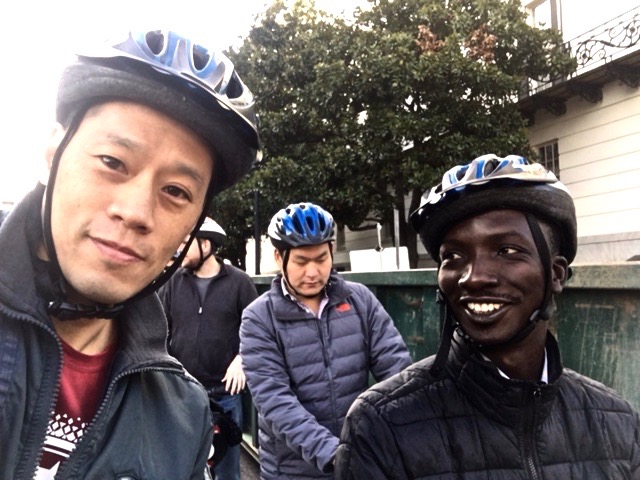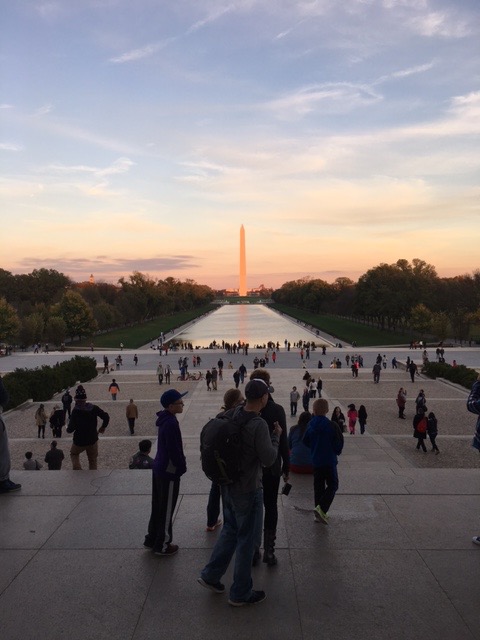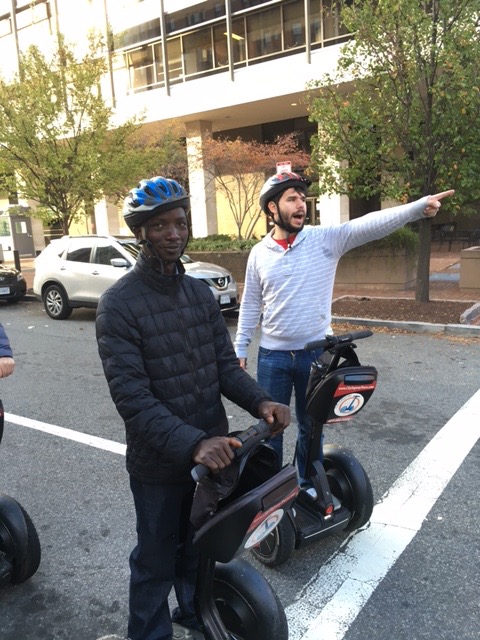"Coming to America"
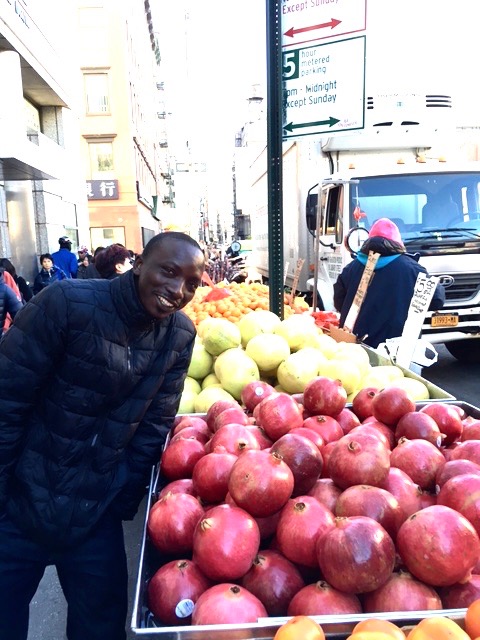
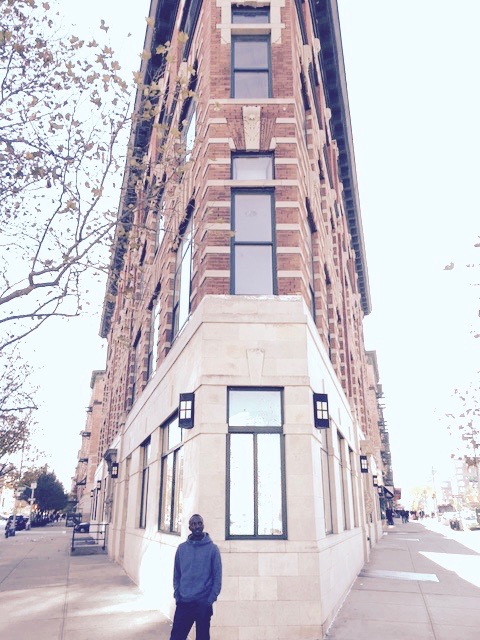
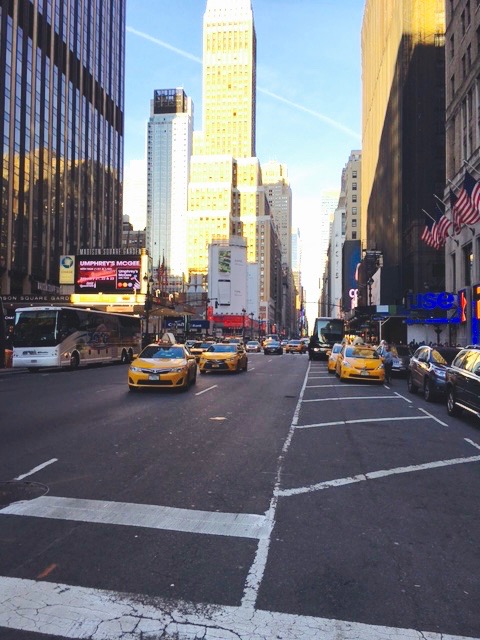
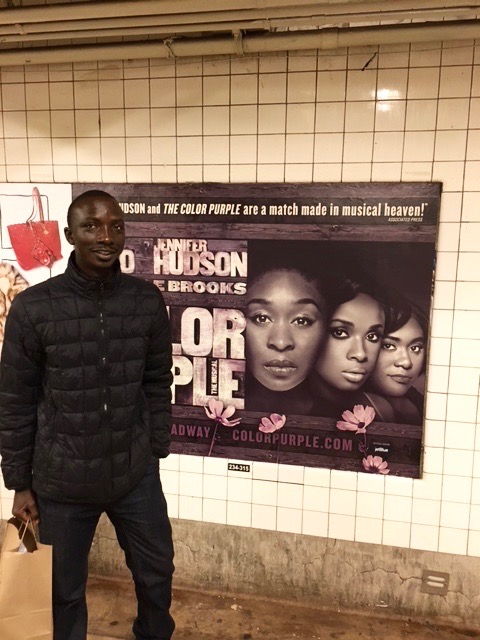
Augustine and I are rushing as is our custom. In Liberia, we rushed to get medical handbooks printed straight in time for meetings, or to arrive to Saturday clinic in time to give Daniel, Princess, and Nusch their insulin before their ice melted, or to spend down health grants at year’s end on custom-made wooden shelves, Chinese stethoscopes (mistake), solar refrigerators and 10,000 extra pages of hospital stationary. Here in New York City we are rushing to catch the 7 a.m. Bolt Bus, which will take us from Canal Street and 6th Ave to Union Station in Washington DC. We have eleven minutes to go at a calmer pace but only ten minutes on the clock. It has started to drizzle but thankfully it is not cold. I am leading the way with Augustine following four to five meters behind. The roads are quiet because it is early Sunday except for the swish-swish of indolent sweepers and warning beeps of groaning garbage trucks. There is a scent of putrid oyster sauce and fresh rain. I am aware that this arrangement might be rude.
Augustine has been in the United States for a week now. It is difficult to imagine how a man who has never traveled outside of Liberia and Guinea processes being in one of the most decadent and wealthiest places in the world. Augustine normally doesn’t proffer unsolicited information unless trying to convince me to come back the IRC (not in my control) or believe in God (not in my control), so I have to check in with him regularly. Certain events remind me to do this: Like when I handed Augustine a tangerine and he bit into it like an apple. Or when he crouched like riding a skateboard as we rode down his first escalator. Or when he was convinced that there was no way I might return the scarf I had purchased even though I didn’t end up using it for this year’s Halloween costume.
“That is your responsibility,” he said.
“This is the United States,” I said.
When the vendor at the REI register credited me back my $22 dollars, Augustine looked as if he had just witnessed a drug deal.
“Seriously,” I shout back to the slim figure puffing along behind me, “what’s been the favorite thing you’ve done so far?”
I am interested. I have been a good tour guide. I decided early on to give Augustine the vacation of a life-time. Not only has Augustine never had a vacation, but it has taken us three years, many letters, emails, and a butt load of money to successfully obtain the visa to get him here. I am not about to let this opportunity go unrecorded.
“It could not be an easy choice,” says Augustine in a tone beneath that which would be expected of a man answering a question while speed walking and yet, Augustine speaks with the same expression he sleeps with, “all has been most interesting, each with its advantages and disadvantages.”
“Stop stalling,” I say, “you have to choose! Pretend if you don’t then we don’t make the bus to Washington DC. You want to see our nation’s capital. Believe me.” This remark gives Augustine pause.
Halloween night with friends
I am wagering Halloween night when Augustine and I dressed up as stick figures using soldered LED lights. (Note to self: Never try to make an electric costume three hours before the NYC Halloween Parade) Our costumes were really popular. We were almost unable to walk down the street so many people stopped us to take pictures. But, it was fun to witness the city embrace Augustine and his uncharacteristic look of surprise and joy.
Or was it Augustine’s first nightclub experience without prostitutes? Augustine sensed the paradox of Americans taking pleasure in poisoning their friends and turned his initial shot glass onto the floor when he thought no one was looking. “You just poured 15 dollars onto the ground,” I yelled. This stopped similar subsequent acts.
Or was it biking through NYC streets on Citibike without being hit by a car? I didn’t think Augustine knew how to ride a bike because in Monrovia the main traffic takes over all lanes including the side-walk and outside of the Capitol, the roads are pot-holed, bumpy and cruel. We rode from Chinatown to St. Marks where we drank bubble tea, which Augustine seemed to enjoy until I explained that the tapioca balls might first resemble inhaled snot. Later we passed by Washington Square park where a man dressed as Darth Vader was playing classical piano on a baby grand as if this were an ordinary New York occurrence. Augustine seemed more impressed by students without shoes dancing around the water fountain.
Fifteen minutes into our ride, a little past Newark on I-95, at the middle left of the bus, Augustine gives me his answer. His response is unsolicited and it takes me a while to figure out what the heck he is talking about. “I would have to say APHA,” he says, “I found it a most informative experience.”
APHA stands for American Public Health Association and for three days during the week prior, Augustine and I attended its annual conference in Chicago. This was for me a perfunctory experience. The excitement I once felt towards an organization touting in-your-face social justice has for years been replaced by the intimations of overweight public health bureaucrats
“You mean the conference where I had to pay a $900 dollars for me to give two talks that no one listened to, “ I say, “and $350 so you could have access to cheap free chocolate and pens with pharmaceutical logos?”
“I thought the chocolate and your talks were quite good,” Augustine says.
“You always think my talks are good,” I say.
“Well I know how hard you prepare,” he says.
“I do prepare,” I say, “and thank you for that. Good thing you are not female. Seriously, why APHA?”
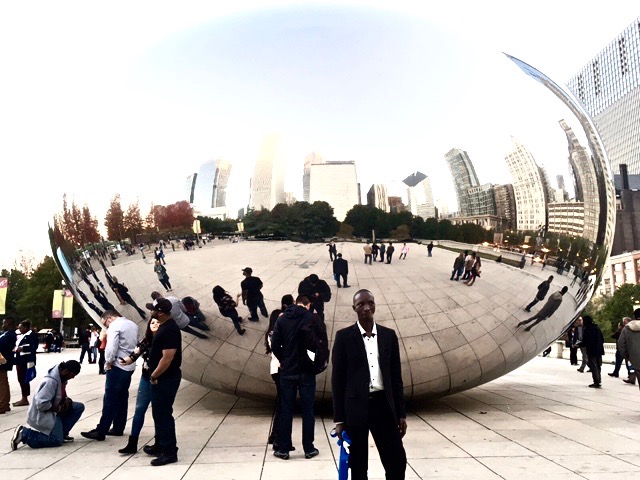
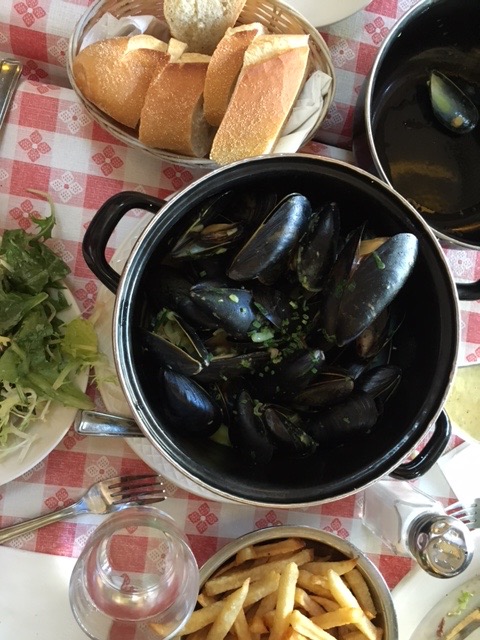
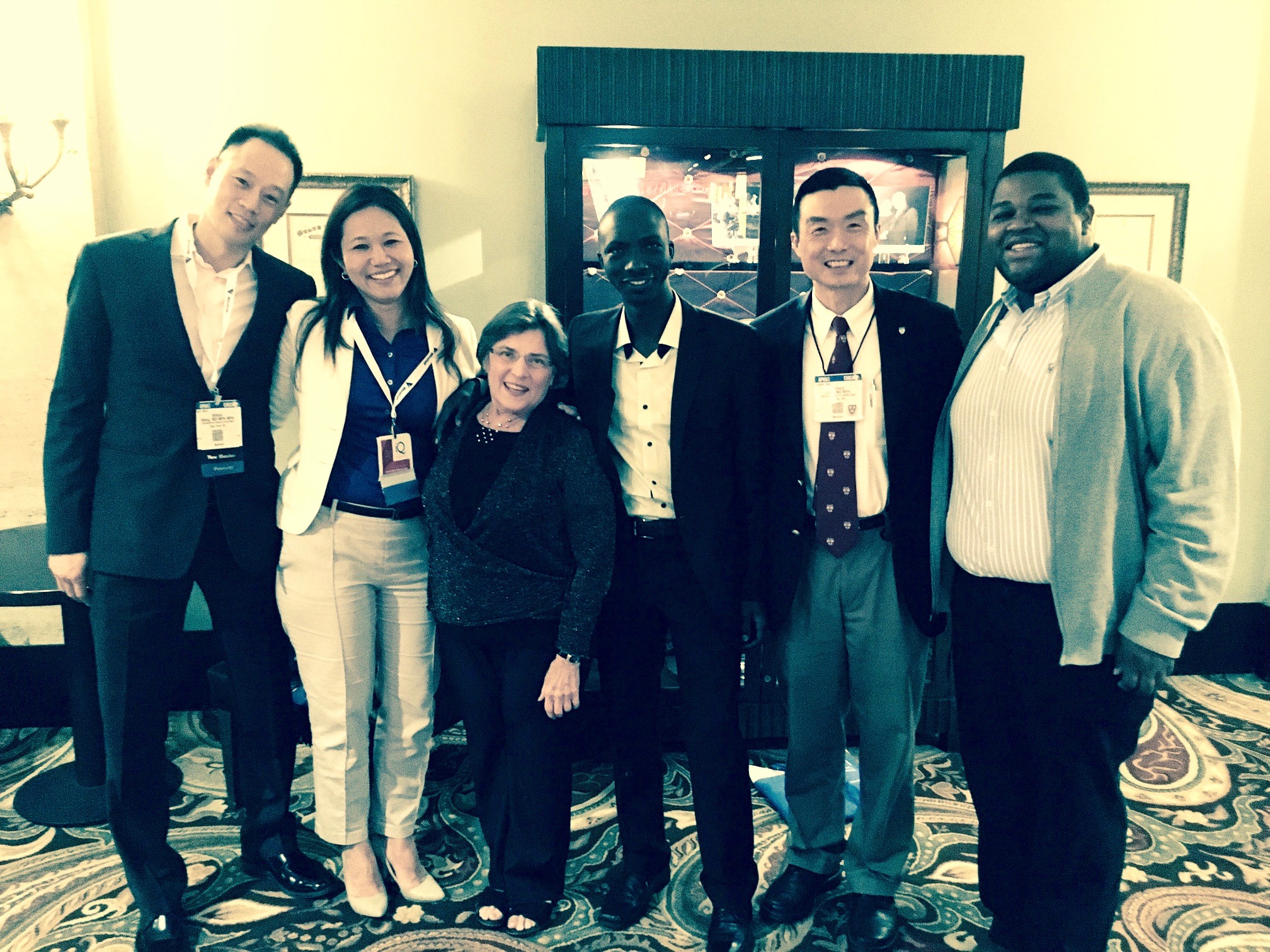
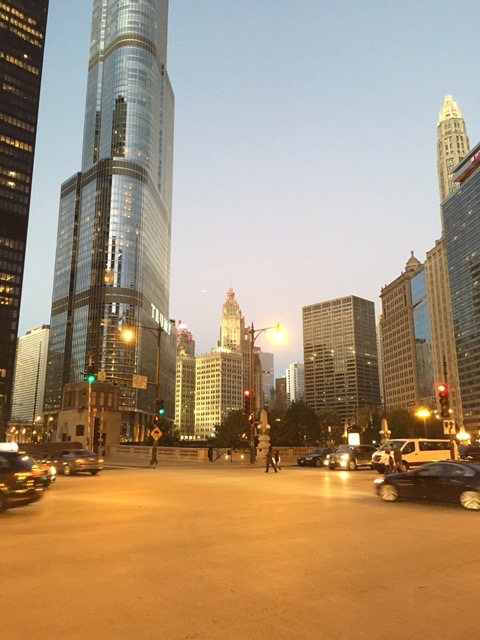
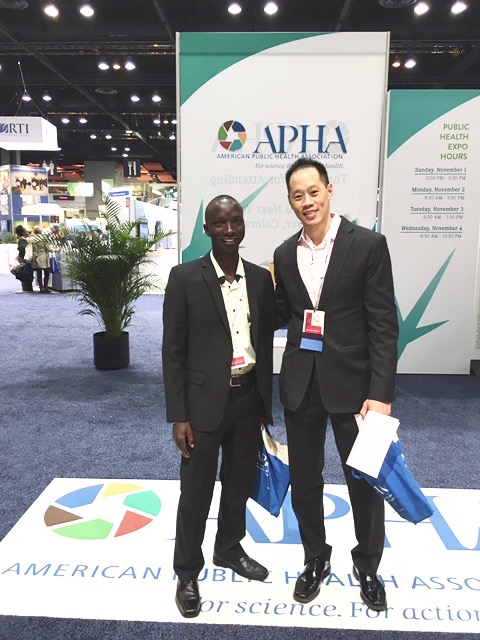
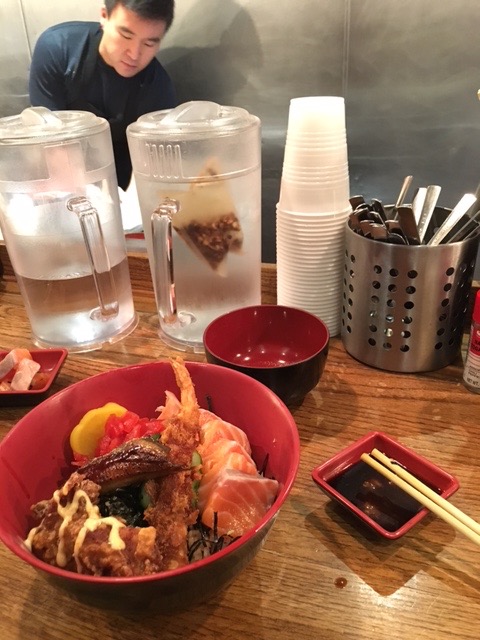
To this Augustine raises his right eyebrow as if he has become an American comedian in the 1970’s. “In Liberia, we would not have a meeting where the participants took such a task so seriously. I learned about diabetes management. I learned about emergency response and I got to meet your friends at the receptions. That was truly great.”
Sometimes I think being with Augustine is like having a child. I am not saying that Augustine acts like a child. I am saying that the responsibility one feels caring of another who without you has no family, no money, no home, and no context. At the airport last week, after greeting Augustine and being seriously amazed that he had made it past Casa Blanca, I turned my back only for a moment only to find that Augustine was not behind me. I tried to keep my cool but after circling back, retracing our steps, looking at the face of every dark skinny guy at JFK airport like a seriously unconscionable profiler, and then doing it all again for 15 minutes, I became quite panicked. I couldn’t figure out what to do. Did JFK have a lost and found for people? If I called Augustine’s phone in Liberia, would it ring here in New York? Would he even think to turn it on? How does one simultaneously arrive to NYC and become a missing person? I didn’t know whether to be angry or relieved when shortly after running through doomsday scenarios, I spied Augustine through the terminal window leaning against a pillar next to the cross-walk with his hoodie pulled over his head at the obviously unaccustomed cold. He looked both stiff and casual. It was immediately obvious that Augustine had been in this position before: Waiting and kind of lost in circumstances in which he had no power. The only thing to do was to save energy; be still.
“My God,” I said going out to him, “where were you?”
“Oh,” Augustine said, “I was right here. I have been right here the whole time.”
In Washington DC, Augustine and I first hit the Metropolitan space museum. I am cast back to the days of my childhood wandering the Louvre like a petulant (small) zombie unappreciative of great things. Augustine is my father. Then we hit the Native American museum, later deciding that we enjoyed the institutions spirit, presence and activism but that it needed work. “In some regards this might appear like a decorated warehouse,” Augustine says. We then head for the Metro to Dupont Circle where we have a hotel for the night. It is raining and on the way to the station, I try to cover both our heads and bodies with my umbrella. Augustine in this regard is hard to keep up with since he doesn’t care about getting wet. In Monrovia it rains 17 feet a year.
DC Metro’s massive declining paths running from street to subway platform are a sight to behold for every first time visitor. On the one hand, enormous cement lips look to swallow tens of well-dressed usually serious appearing people. On the other hand, tens of people similarly clad and countenanced emerge from this entirely unnatural orifice not appearing any worse for the wear. Despite the latter and because of the former, Augustine hops onto the first escalator step not unlike the protagonist in the 1970’s video game Frogger: This path he must traverse but not without apparent obstacles and risk. “This also serves a nuclear bomb shelter,” I say long enough for Augustine’s forehead to contort, “joking of course.”
At the bottom of the stairway, Augustine and I purchase train passes from one of five machines of varying height and complexity. I want Augustine to undertake the process from start to finish because I know he has not done anything like this before. Behind us are passengers who don’t seem very sympathetic to the Asian guy teaching a Black dude commercial transactions in the 21st century. Call me sensitive.
DC Mall - Lincoln Memorial, reflecting pond, Washington Monument
“You want to look at the map to see where we are going,” I point to the dots on the red-line chart above the machine display, “we are at Metro Station. We want to go to Dupont Station. That is going to cost $2.25 but we don’t care because be are going to many places these next two days so just press the ten dollar option. No make that twenty. So we don’t have to worry about running out of money if we’re ever in a rush.”
Augustine turns back at me as if I have just shared with him bleak news. His index finger is raised one foot from the glass as if frozen.
“Well, let me press the dollar amount opton,” I say while doing this, “now, you press that button to the right of the screen for the amount we want to spend: Twenty dollars.”
Augustine presses the button the wrong way so it is going towards $0.
“No the other direction.”
Augustine presses the button too far the other way so it is now at $40
“No too much.”
Augustine clicks the button methodically as if counting passengers on a cruise in no hurry to set sail. I feel bad but I want to throttle him. The credit card insertion step fares no better.
“How does one get one of these cards,” Augustine asks, “who will pay?”
“I’ll tell you later,” I say, “just slide the card in the direction that it indicates.”
“No the other way.”
“But faster.”
“Too fast.”
“Okay just right.”
“Now, press there.”
“Not cancel!”
“Oh my god, we have to start again.”
“Maybe there’s an App you can practice on.”
“What’s an App?” Augustine says.
One shouldn’t assume knowledge and experience. While it is easy to blame the newbie, it is more probably the fault of the host/teacher/ assistant/colleague/what have you, who doesn't have to be impatient and insensitive. Yet the dynamic is difficult to do well. When I work in East Harlem in the emergency room (ER), most of the patients are Latinos from Mexico, Dominican Republic and Puerto Rico and the majority speak English only as a second language or not at all. If you start out speaking in English, the families are so polite, they might nod the whole way through the encounter as if to convey understanding when in actuality there is little understanding.
But if you start out speaking in Spanish, every one in five families will blurt out, we speak English or, we don’t speak Spanish! If you ask in English what language is best, sometimes people think oh, just because I am not white you think I don’t speak English? Would you question white people the same? If you ask in Spanish what language is best, you are similarly paternal, prejudiced and screwed.
It’s taken me some years, but the technique that seems to work best for me is to communicate the reason for the clarifying question in the first place. It can proceed along the lines of:
“Since there are multiple languages spoken at this hospital, I always start by asking patients what language they prefer to speak.” Or,
“Is it okay to ask in what language you want us to speak? This is a diverse community and I don’t want to presume anything.”
The importance of being gracious
Of course, the best option would be to include as part of the registration process, a question as to which language the patient feels most comfortable using. This information would appear on the medical chart and be passed-on down the line obviating the need for the linguistic dance I just mentioned. Of course, this doesn't happen in any hospital I work at.
“I ask you these questions because I want to make sure you have a good time in the U.S.,” I say to Augustine. We are at the DC National Zoo, which despite the brisk weather is busy because it’s coincidentally Labor Day and the sun has finally poked out. “It’s not to interrogate you. I suppose also that I want to make sure that you’re doing what you want, because it might be a while until you’re here next.”
Augustine and I have just finished watching the elephant exhibit featuring two somber elephants lumbering around a swing set constructed for their play. While they stared askance at the contraption with a modicum of disbelief, I realized that a zoo might have been the worst place to take Augustine. Was this equivalent of me going to see friends in Berlin and them taking me to Chinatown for Kung Pow Chicken, or a professional soccer player brought to a soccer match on his/her day off?
“No, I would not feel you were interrogating me,” Augustine says, “I have enjoyed all my experiences in the U.S. and am happy and grateful at that which you have chosen.”
“But what do you want to do?” I ask.
“I would not have enough experience to answer this question,” says Augustine, “I have never lived in the United States. You having lived in this country would have a better idea of worthwhile activities.”
“Well, what do you think of a zoo? Does a man from Lofa, Liberia want to see animals with white people?”
“I have never seen animals besides a dog, cat, rat and monkeys at the market. In Guinea there were cows. Liberia does not have elephants. And we would not have a place for all types of people to come and study animals.”
“But don’t you feel bad that the animals are caged for people to study,” I ask, “how would you like it if Martians studied you?”
Augustine chuckles, “It could not be this way,” he says, “in Liberia, we have only seen television programs regarding lions and giraffes but it is different to have the ability to see the real thing. “
“Well, maybe all these animals were found injured and this was the only way to keep them alive. They’re probably happier than they seem,” I say this knowing these statements untrue. The world is entirely unfair with multiple levels to choose from. Who knows if in the next life I will be born as an Indonesian Orangutan.
“Let’s go see the penguins,” says Augustine, “I am cold, but it is my impression that this weather is too warm for them. I wonder how they do.”
